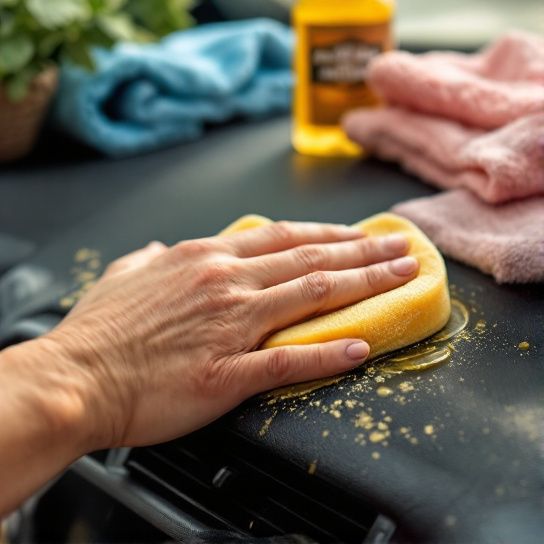Have you ever found yourself caught in the maze of natural beauty products, endlessly seeking the right potion that can actually transform your skincare routine? I’ve been there. When your skin’s caught in the chaos of dryness, those stubborn blemishes, or maybe it’s just dull and lost its zing—there’s a secret power hidden in nature that you might be overlooking: rosehip oil.
What’s All the Hype About Rosehip Oil?
Let’s dive in right away. Imagine a beauty oil that not only hydrates but also plumps up your skin, fights inflammation, and helps scars and stretch marks fade away like yesterday’s memories. Sounds too good to be true, right? But you can trust me on this one—rosehip oil holds that kind of magic, thanks to its unique profile of essential fatty acids, vitamins A, C, and other brilliant antioxidants.
Rosehip oil is a darling of the skincare world, mostly because it’s all about rose power—derived from the fruit left after a rose has bloomed, called rose hips. This oil encapsulates nature’s healing benefits in a bottle, with just a dab bringing you closer to natural radiance.
Now, don’t just take my word for it! The journey you’re about to embark on with rosehip oil will illuminate its brilliance while exploring how to make it an indispensable part of your natural beauty regimen. Let’s dig deeper into how it can legitimately become your skin’s new best friend.
The Rosehip Secret to Radiant Skin
So here we are, breaking down how this heavyweight player packs in so much goodness. The scientific bit, if you will.
- Rich in Vitamins: We’ve mentioned vitamins A and C already, but let’s turn the light onto them a bit more. Vitamin A’s your warrior against aging; it keeps that youthful bounce in your skin. Meanwhile, Vitamin C brightens you up, smoothing out those pesky fine lines as a delightful bonus.
- Full of Essential Fatty Acids: These guys—the omega 3, 6, and 9 fatty acids—aid with nourishing and hydrating your skin like nothing else. They’re fundamental in retaining moisture, helping maintain a protective barrier on your skin with lifelong benefits.
- Antioxidant Powerhouse: Fighting off environmental stressors is key in skincare. Here, rosehip oil covers your back with antioxidants that create a barrier against pollution and sun damage, thus delaying those dreaded signs of aging.
Okay, so that might scratch the surface, but rosehip oil’s appeal doesn’t stop at its composition. Are you starting to see why it’s taking the world of natural beauty products by storm?

Incorporating Rosehip Oil Into Your Routine
Let’s break this down for those of you who are ready to give this gift of nature a try. How do you actually go about using rosehip oil effectively?
1. Daily Moisturizer Upgrade
First things first, consider rosehip oil as your moisturizer enhancer. Mix a few drops with your go-to face cream. The oil will amp up the hydration levels without feeling overly greasy. Your skin drinks this up, trust me. Don’t shy away from mixing it with your existing natural beauty products for that extra pop of moisture.
2. Serum Substitute
Maybe you’re in the market for a new serum. Fantastic news—rosehip oil fills this role with aplomb. After cleansing and toning (remember, clean canvas!), gently massage a couple of drops into your skin. Not only does it absorb quickly, but the slight earthy aroma is kind of enhance-your-mood therapeutic.
3. Spot Treatment Hero
Got scars or stretch marks bravely showing up no matter how many products you try? Dab some rosehip oil directly onto these spots, doing so consistently. It’s played a huge hand in fading my stubborn blemishes over time.
4. Mix with Foundation
For a dewy, empowered glow that sunshine couldn’t hold a candle to, you can mix a drop with your foundation. Not only does this loosen up any cakiness, but your skin will wear that day-long hydration remarkably well. No more dreaded afternoon touch-ups!
5. Lip and Cuticle Savior
Don’t forget about those lips and nails—hey, they deserve love too! Rosehip oil nurtures dry, cracked areas by bringing healing moisture and softness. It helps keep those hangnails at bay and smooths out flaky lips ready to smile.
Understanding Rosehip Skin Interaction

Now, while rosehip oil is pretty awesome, nobody’s perfect. It’s crucial to mention that, like any product, it may not suit absolutely everyone. So, how do you know if it’s a match made in skincare heaven or a potential soon-to-be ex?
**Check Your Skin Type**: Rosehip oil is generally great—yes, especially for those with dry or mature skin—but if you’ve got oily or particularly sensitive skin, it’s wise to test it first. Use it sparingly to avoid potential breakouts or irritation.
Remember that everyone’s skin is different, which is why listening to your skin is rule number one. Opinions from fellow Rosehip oil lovers are invaluable but always check in with what your skin is telling you.
Debunking Rosehip Oil Myths
As we navigate this rose-scented world, let’s pop some popular myths:
- “It’s Just For Your Face”: Absolutely not! Rosehip oil’s utility spreads beyond; it can bring the same nourishment to your body, hair, and even nails—anywhere you’re craving some tender love and hydration.
- “Light Sensitivity Alert”: While some oils make your skin sensitive to sunlight, rosehip oil isn’t one of them. Use it morning or night without fear of sensitivity. Just don’t forget your sunscreen because that’s always key, oils or no oils.
- “Not An Acne Fighter”: If you’re dealing with acne-prone skin, you might think adding oil is a big no-no. That’s misleading; rosehip oil’s anti-inflammatory properties can actually calm redness and reduce breakout longevity.
DIY Rosehip Oil Blends
For the aficionados out there, why not step up your game with some personalized blends? It’s easier than you think to tailor-make your potions using rosehip oil as your base. Here are a couple of ideas to inspire you:
Rosehip & Lavender Night Elixir
Mix together:

- tbsp Rosehip Oil
- 8 drops of Lavender Essential Oil
The calming aroma and healing blend bring on peace and repair after a long day.
Hydrating Hair Serum
For dry locks craving moisture, make it fabulous with:
- tbsp Rosehip Oil
- 5 drops Argan Oil
- drops Rosemary Essential Oil
Apply a couple of drops to the ends of your hair; it’s nourishment from root to tip.
Taking The Leap with Rosehip
In embarking on your rosehip oil journey, a few things to consider could help make a world of difference:
- Quality Matters: As with anything going on your skin, I suggest looking for cold-pressed, organic rosehip oil. Pure product equals pure results.
- Consistency is Key: Patience and regular application let the rose power really work its magic. Stick to your routine, and the benefits can astound you over time.
- Weary About Placebo: If you keep consistent but aren’t noticing any changes, ensure other aspects of your routine aren’t sabotaging your skincare goals. Particularly keeping a healthy lifestyle aligns beautifully with your natural beauty products.
In the end, rosehip oil isn’t just about immediate results; it’s a pampering experience designed to fit seamlessly into your existing skincare arsenal. Like other fantastic natural beauty products, it requires nurturing, learning, and a bit of patience.
And there you have it! Hopefully, you and rosehip oil become fast friends, charting the course to glowing, exquisite skin through the power of roses. Are you ready to throw in your hat and dance away with the vibrant grace of nature-gifted splendor? Give it a go. Roses never looked so good!
Frequently Asked Questions
What does it mean if a product is labeled as “natural” in the context of beauty products?
If a product is labeled as “natural,” it does not necessarily mean it contains no synthetic chemicals. The term “natural” is not defined by the U.S. government, so it is important to read the ingredient list carefully. Natural cosmetics typically contain ingredients found in nature, such as mica, silica, and clay, without significant chemical alteration[1][3].
Why aren’t all cosmetics natural if they are supposedly better for the skin?
The primary reasons include cost and the difficulty in creating stable and preserved products without synthetic chemicals. Natural ingredients are often more expensive than synthetic ones, and maintaining the desired qualities of cosmetics, such as lightness and easy absorbability, can be challenging without using proven chemicals[1][3].
When should someone consider using natural beauty products or skincare?
Consider using natural beauty products if you have a known allergy to chemical ingredients such as preservatives. However, it is crucial to check the ingredients and perform a patch test, as natural ingredients can also cause allergies. Natural products may be beneficial for those seeking gentler, more recognizable ingredients, but they may not work for everyone[1][3].
What are the potential benefits and challenges of using natural skincare products?
Natural skincare products can be gentler on the skin and more in harmony with the body, often rich in antioxidants that protect the skin from environmental stressors. However, they can be more costly, and their effectiveness can vary depending on skin type and conditions. Additionally, natural ingredients can still cause allergies, and the lack of standard regulations means consumers must be vigilant in reading ingredient lists and looking for certifications[1][3][5].
References

